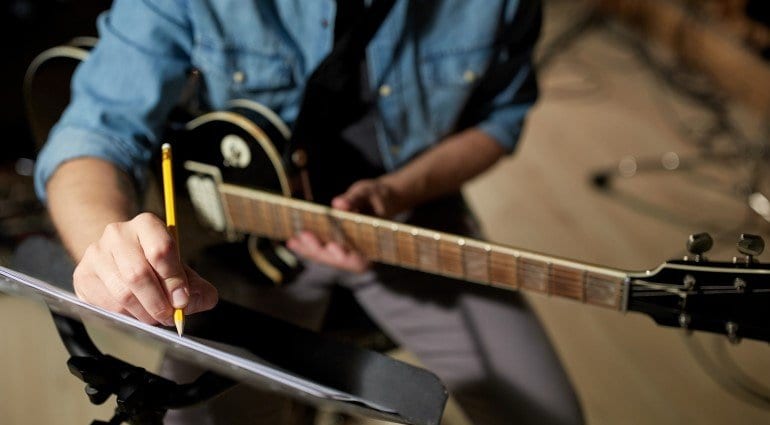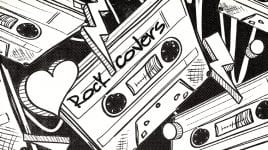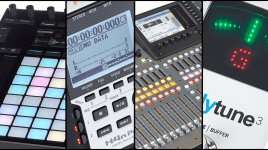
So you always wanted to become a professional musician? See your name in magazines, your band logo on album covers or postered all over town, hear your songs on the radio… and not excluding the rock star life you’ve always dreamt of. But without a doubt: there are multiple challenges that lie on the path of becoming a professional musician. Here are some good habits to help you cope and reach your goal.
1. Practice, practice, practice
If your dream is to be the next Van Halen or Satriani, but your legato or tapping techniques leave a lot to be desired, or are you an aspiring drummer who doesn’t know diddley about mastering their paradiddles? Don’t despair! Whether you’re a beginner or advanced, you can always progress with regular systematic practice – or with the help of an experienced instructor.
2. A little patience
The ability to play complex melodies, intricate chords or sophisticated grooves right off the bat is quite rare. So it pays off to have patience… especially with yourself. This includes the boring repetitive exercises of going up and down scales or playing that solo over and over for the umpteenth time to nail that error-free take. Keep in mind that all your idols, went through the same process.
3. Perseverance
The former point leads us to another good professional habit, perseverance. Set your goals and stick to them. Real pros do not throw in the towel at the face of adversity. While others become disillusioned when problems arise, you are already looking for solutions to move forward.
4. Handling criticism
As a budding professional, you’ll need a “thick skin” to deal with comments and critique from your fellow musicians as well as the general public. They will always have an opinion, and tastes often differ. But the pros know how to use criticism and make it constructive, whether from fans, critics or lousy comments on Soundcloud.
5. Guidance
Seeking guidance in a mentor is often critical for progression. A mentor should be someone who already achieved the goals you have set and may often have the relevant advice and contacts. Not only will they be able to tell you what works or not, they’ll know all about a musician’s life on stage and in the studio, saving you from numerous career disasters.
6. The pursuit of more
As a professional, there’s a lot to learn and discover, not only in terms of musical skills and theory, but also in the basics involving technical and business related issues. Although it’s best to have an expert repair your equipment or get a lawyer for legal issues, a little know-how in these matters as well as any promotional and commercial issues can prove very useful in your career.
7. Handle with care
As mama always said: take care of your stuff! A professional musician is aware of the importance of their investments, their equipment, their accessories and the maintenance thereof. This ensures that their instruments are always ready for use and are reliable for years to come. GHS fast fret for example keeps the wood ‘alive’, serves as dirt and corrosion protection for the strings and helps preservation all the way to your fingers.
8. Be prepared!
If you’re well prepared for rehearsals, concerts and recording sessions, then you’re already thinking and acting like a pro. And even if you can’t predict everything in advance, it’s a good start. Is there a new set of guitar strings ready in the rehearsal room? Do you carry spare batteries for your wireless microphone? If so, you’re on the right track.
9. Punctuality
Punctuality is a true professional virtue. Arriving ahead of time at the rehearsal room, is an indication that you take your professional ambitions seriously. This a quality often overlooked by amateurs, and it’s certainly not advisable to start in this business with a bad reputation.
10. The courage to take risks
Between all your practice, planning and preparation you should always be willing to take risks. No need to immediately stage dive off the lighting rig, but a bit of madness and surprise always pleases the audience, an improvised solo, an open session jam … just do your thing!
8 comments
Leave a Reply
You are currently viewing a placeholder content from Facebook. To access the actual content, click the button below. Please note that doing so will share data with third-party providers.
More InformationYou are currently viewing a placeholder content from Instagram. To access the actual content, click the button below. Please note that doing so will share data with third-party providers.
More InformationYou are currently viewing a placeholder content from X. To access the actual content, click the button below. Please note that doing so will share data with third-party providers.
More Information





Melvyn Rutter says:
Hi, one lesson I’ve learned is to play what I want to play, in songs that people want to hear. Playing popular songs means people like you, they pay you, and they ask you back. Playing what you want to play keeps you happy, gives a new edge to the song. Some songs have to be as they are, and that can be a good dicipline. But some songs can be enhanced from a new approach. Half of The Beatles first 3 albums were cover songs !!! So with care you can create something new from something old
Larry says:
Great points Melvyn, thanks!
Music Lover says:
Handling criticism is one of those things that every artist needs to be able to do. Oddly enough, the more accomplished you get the more likely your skills will be taken for granted.. almost like the poor sound guy who only gets noticed when things are bad :). Kind of one of those things about being an artist, we put ourselves out there and people will make a decision based on what they like. The fact is, no matter how good you are someone will say you suck. I have never heard a number hit that didn’t get a reaction from somebody nearby saying “I hate this song”.
chris lovekid says:
great advice
Joe says:
Thanks Chris! Best of luck
Prince Bobbi says:
I want to be a musician
Nache says:
Lovely
codybecth says:
Great Article! Thank you for sharing this is a very informative post, and looking forward to the latest one